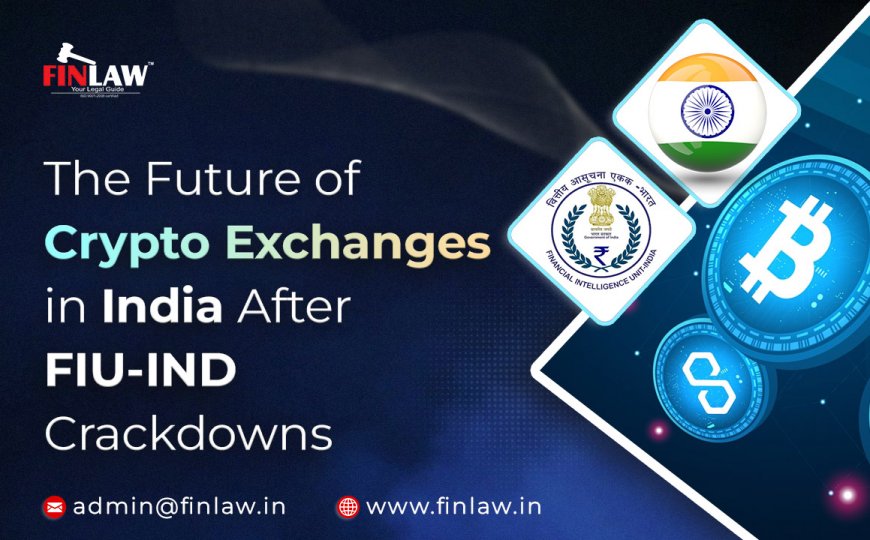The Future of Crypto Exchanges in India After FIU‑IND Crackdowns
Discover how FIU-IND crackdowns are reshaping the future of crypto exchanges in India. Learn about compliance, taxation, and user impact.

What Is FIU‑IND and Why Does It Matter to Crypto Exchanges in India?
The Financial Intelligence Unit—India (FIU‑IND) is the nodal AML agency under the Department of Revenue, tasked with collecting, analyzing, and sharing financial intelligence under the Prevention of Money Laundering Act (PMLA) 2002.
Since December 2023, FIU‑IND has required all virtual digital asset service providers—including both domestic and offshore crypto exchanges serving Indian users—to register as “reporting entities” and comply with reporting norms and KYC/AML obligations.
Non‐compliance triggered show‑cause notices and mandates to block access at the government level.
The FIU‑IND Crackdown Timeline: How It Unfolded
-
Dec 28, 2023: FIU‑IND issues compliance notices to nine offshore exchanges—Binance, KuCoin, Kraken, Huobi, Gate.io, Bitstamp, Bittrex, MEXC, Bitfinex—and instructs MeitY to block their URLs.
-
Jan 2024: India blocks these exchange websites/apps. Domestic platforms like CoinDCX, Mudrex, WazirX, ZebPay begin onboarding migrants from affected exchanges. CoinDCX alone saw a 2,000% surge in deposits.
-
Mar 2024: KuCoin registers with FIU‑IND, pays ₹3.45 lakh fine, resumes operations, and plans local partnerships.
-
May–Jun 2024: Binance registers, pays ₹188 crore (US$2.25 million) fine—India's largest crypto penalty so far—and actively resumes services.
-
Early 2025: Coinbase also registers, planning phased re-entry starting with retail services later in the year.
Why Do These FIU‑IND Actions Matter?
Banking on Compliance
Exchanges compliant with FIU‑IND are considered secure and legal destinations for Indian crypto investors:
-
Domestic platforms like CoinDCX, WazirX, Mudrex, ZebPay, Unocoin offer regulatory reassurance and local support.
-
Offshore exchanges that later register (e.g., Binance, KuCoin, Coinbase) can resume services—bringing better features, liquidity, and global standards.
Investor Shift & Market Domestication
The crackdown accelerated migration:
-
CoinDCX saw deposit growth over 2,000%; Mudrex onboarded 10,000+ users within weeks; CoinSwitch and BuyUcoin offered bonuses to attract transfers from banned platforms.
-
This ushered in the rise of Indian exchanges as dominant venues for crypto trading.
What New Laws Mean for Crypto Users in India
February 1, 2025 Regulation Change
From February 1, 2025, Section 285BAA in India's Finance Bill mandates that FIU-registered exchanges must maintain detailed transaction records.
-
The law is retrospective: any exchange that registers in future would expose past trades if they retained data.
-
Crypto gains are taxed at 31.2% flat, with no set-offs or income rebates; penalty for undisclosed patches: up to 60% under Section 158BA(7).
Implications
-
Only FIU-compliant exchanges can legally operate and report trades.
-
Decentralized exchanges (DEXs) or non‑FIU platforms may seem attractive for privacy, but federal oversight and possible retroactive claims pose risks.
-
Data retention policies—some exchanges keep user records for up to 6 years—have raised concerns around privacy and misuse.
Crypto Exchange Landscape in India: Present & Future
Domestic Market
-
CoinDCX: Saw massive deposit inflows post-crackdown. Offers incentives, migration support, and full FIU compliance.
-
Mudrex: Focused on long-term crypto investment; onboarded 10k+ users and over $1m deposits quickly.
-
CoinSwitch PRO: Launched localized deposit incentives, robust infrastructure.
-
WazirX, ZebPay, Unocoin, BuyUcoin: Reporting entities compliant with PMLA, each capturing new user segments.
Re‑entering Offshore Players
-
Binance registered in mid‑2024, resumed operations, and regained millions of Indian users after paying ₹188 crore penalty.
-
KuCoin registered in March 2024 with a small penalty and is bringing global features to India with local teams.
-
Coinbase gained approval in March 2025, plans a phased launch of retail and institutional offerings later in the year.
Regulatory Review and Signals
-
India is reviewing its crypto policy in light of global developments, delaying its formal discussion paper due in September 2024.
-
FIU‑IND has directly advised exchanges to monitor transactions linked to Jammu & Kashmir and border regions for money laundering risks.
What This Means for Indian Crypto Users
Recommended: Use FIU‑IND–Registered Exchanges
Compliance with FIU‑IND offers legal safeguards:
-
Data sharing with authorities guarantees regulatory legitimacy.
-
Domestic exchanges provide on-ramp INR support, fast KYC, support desks.
Risks of Non‑Compliance
-
International exchanges unregistered or delisted may block crypto withdrawals entirely, locking your assets.
-
Data retention and future registration could expose past trades for retrospective taxation.
Tax Considerations
-
From Feb 1, 2025, flat 31.2% tax on gains (inclusive of cess).
-
1% TDS on every transaction >₹10,000 in addition.
-
No offset for losses or exemptions; full retrospective liability if your past trades get reported.
Alternative: Decentralized Exchanges
-
DEXs and self-custody wallets may provide privacy but come with no regulatory protection, high operational risk, and potential future crackdown or retroactive legal action.
Future Outlook: What Comes Next?
Evolving Regulation
-
The Department of Economic Affairs was expected to issue a crypto consultation paper by October 2024, now delayed. Any future framework may reshape how FIU‑IND and other regulators oversee VDAs.
-
The Reserve Bank of India continues to express caution, while other regulators signal openness to regulated digital asset frameworks.
Industry Competition & Innovation
-
Re‑entry of Coinbase in 2025 brings global liquidity and competitive pressure.
-
Domestic exchanges are upgrading features, offering better user interfaces, security, staking, lending, and institutional-grade offerings.
Institutional Adoption
-
Enhanced compliance may attract regulated institutional participation, custody solutions, and blockchain development projects in India.
Frequently Asked Questions
Q1. What is FIU-IND's role in crypto regulation?
FIU-IND enforces anti-money laundering compliance by mandating registration of virtual digital asset service providers under the PMLA. It collects, monitors, and reports suspicious financial transactions.
Q2. Are crypto exchanges legal in India?
Yes, as long as they are registered with FIU-IND and comply with applicable tax and AML laws.
Q3. Can I still use Binance in India?
Yes, as of mid-2024, Binance is FIU-IND registered and fully compliant to operate legally in India.
Q4. Are my crypto trades private in India?
No. Under current regulations, FIU-IND–registered exchanges must maintain full transaction records and report them to tax and enforcement authorities.
Q5. Should I avoid non-FIU-IND exchanges?
Yes. Using non-compliant platforms can result in blocked withdrawals, tax complications, and legal exposure.
Conclusion
India’s strengthened regulatory framework, driven by FIU‑IND enforcement and legislative changes, is transforming the crypto exchanges landscape. The crackdown on offshore platforms shifted millions of investors to domestic players, accelerating regulatory compliance and innovation. Major international platforms like Binance, KuCoin, and Coinbase are now re‑entering the Indian market under FIU–IND supervision, boosting competition and features.
For crypto users in India, the message is clear: use only FIU‑compliant exchanges to ensure access, legal clarity, and tax compliance. While decentralized platforms may offer perceived privacy, their risks and opacity can lead to future liabilities. As India continues to refine its crypto policy and weave together regulatory oversight, transparency, and investor protection, the future points toward a more mature and secure ecosystem for crypto in India.
What's Your Reaction?



















